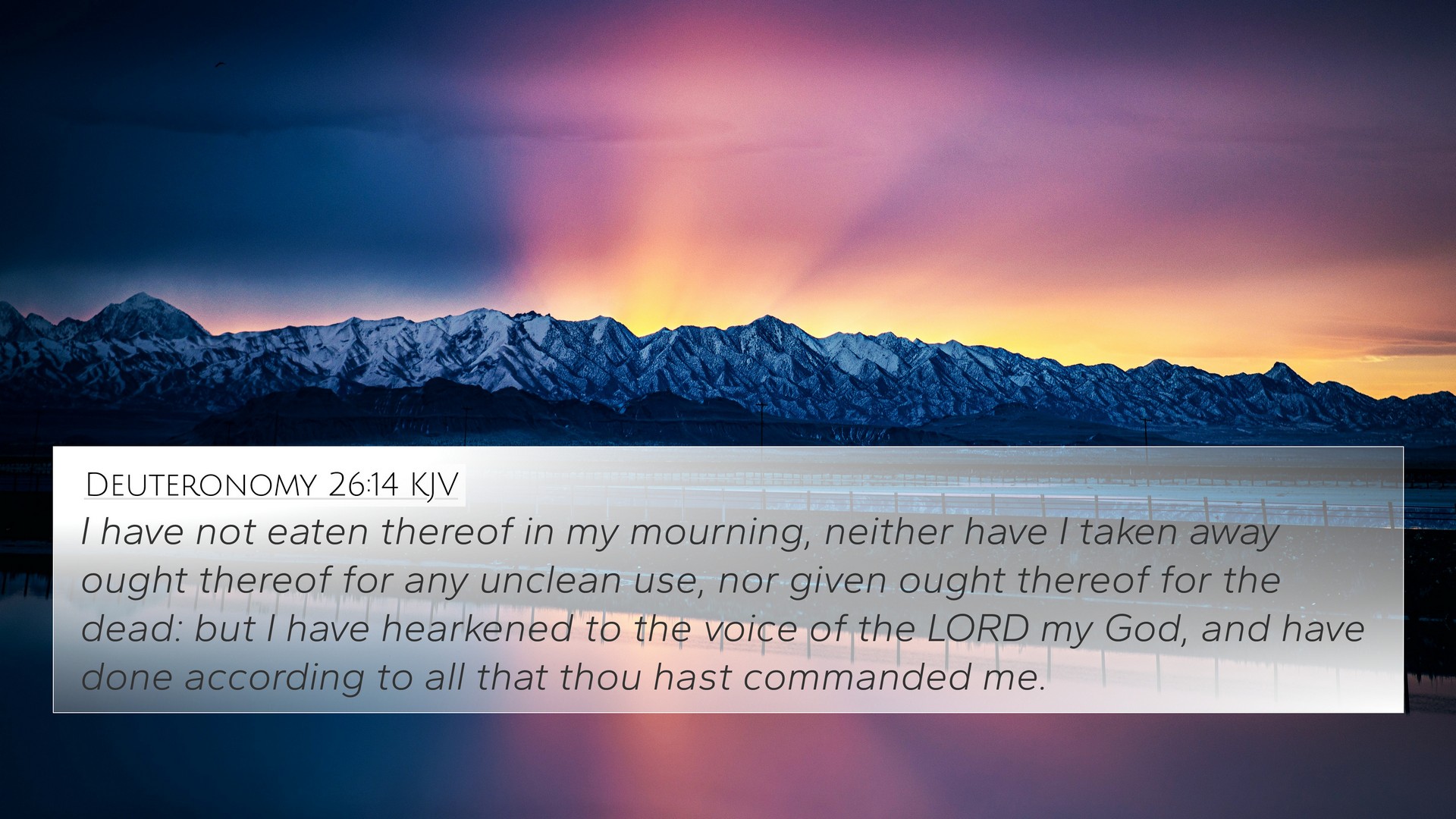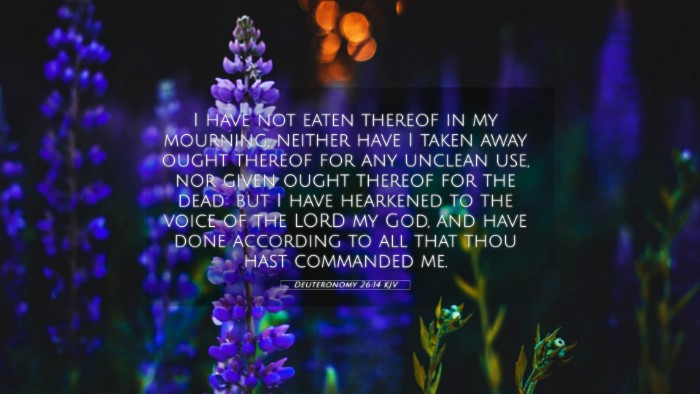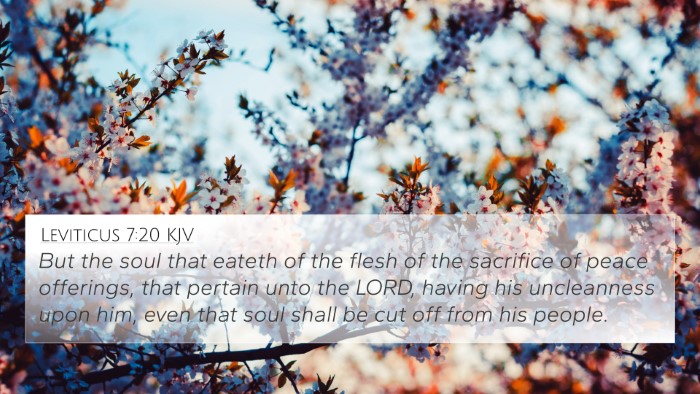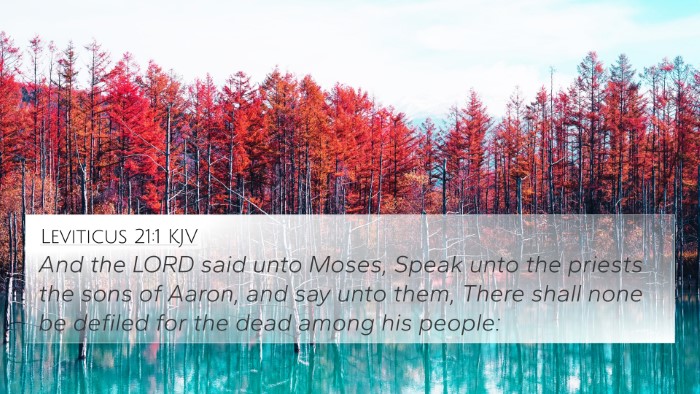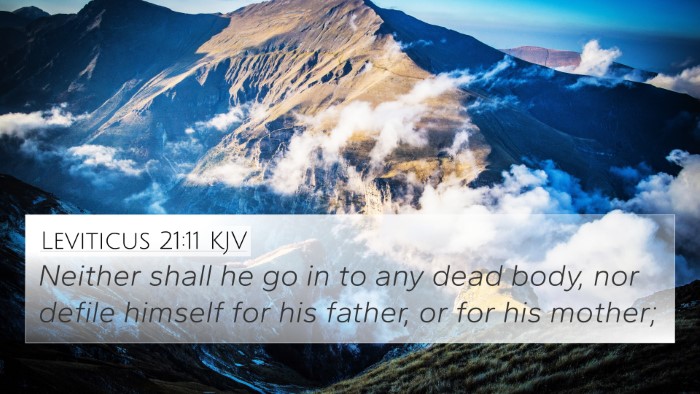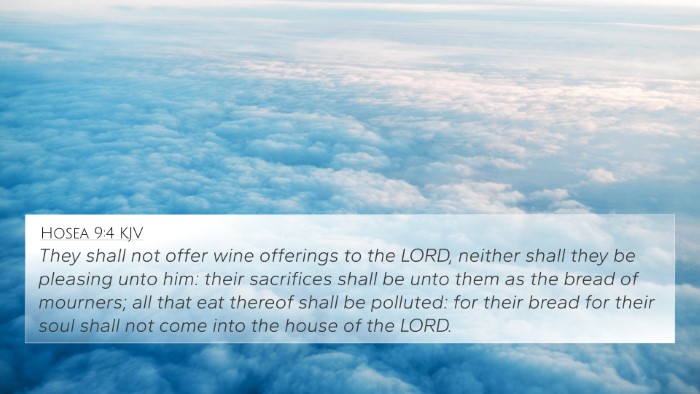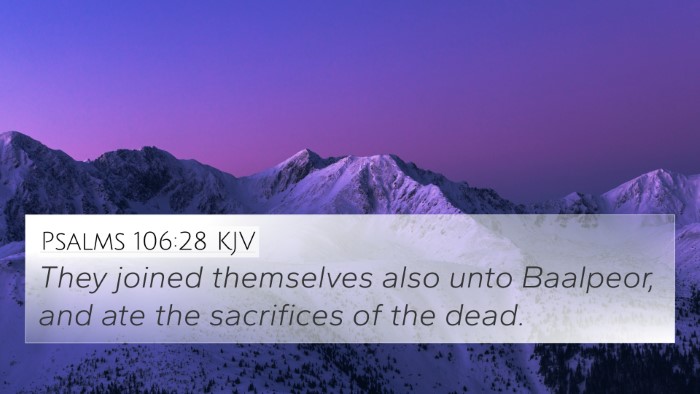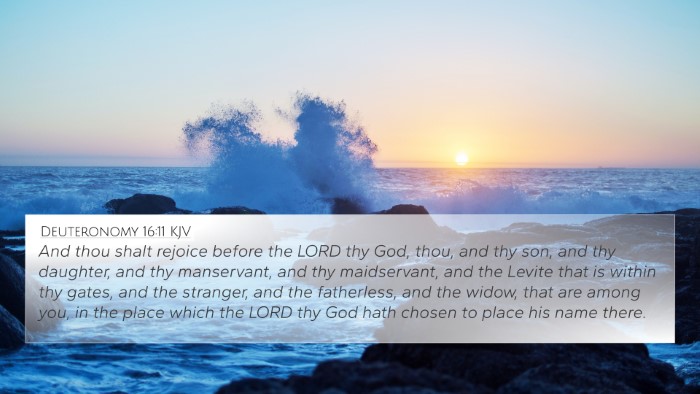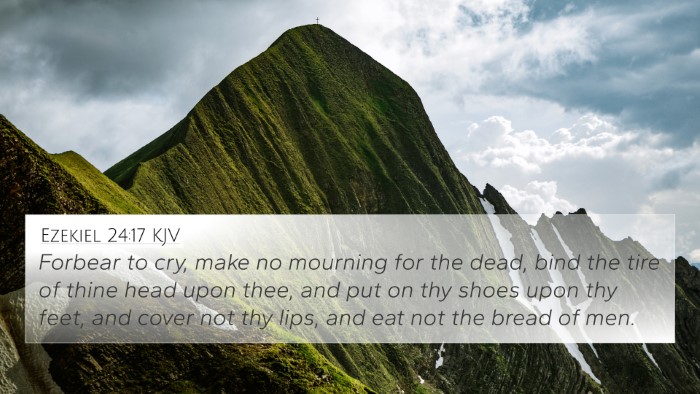Understanding Deuteronomy 26:14
Deuteronomy 26:14 states:
"I have not eaten of it in my mourning, neither have I taken away from it for any unclean use, nor given ought thereof for the dead: but I have hearkened to the voice of the Lord my God, and have done according to all that thou hast commanded me."
Summary of Meaning
This verse emphasizes the importance of offering to God with sincerity and purity of heart. It reflects the requirements of the Law regarding the presentation of first fruits, showcasing the obedience and devotion of the individual.
Insights from Public Domain Commentaries
-
Matthew Henry:
Henry emphasizes the integrity involved in the offerings presented to God, highlighting that they should not be tainted by personal grief or impurity. He suggests that the conditions for offerings illustrate a broader principle of holiness required in our worship.
-
Albert Barnes:
Barnes focuses on the declaration made by the Israelites in presenting their offerings. The careful attention to what is given to God signifies a commitment to adhere strictly to His commandments and express gratitude for His providence.
-
Adam Clarke:
Clarke discusses the significance of obedience in this context. He interprets the act of bringing an offering as an acknowledgment of God's provision and blessings. The verse serves as a reminder that offerings should not be influenced by external factors or rituals of mourning.
Thematic Bible Verse Connections
Deuteronomy 26:14 can be understood within a larger thematic context of offering and dedication to God. The following verses are noteworthy for their connection:
- Exodus 23:19: "The first of the firstfruits of thy land thou shalt bring into the house of the Lord thy God..." - This verse underscores the priority of offering first fruits.
- Leviticus 22:21: "And whosoever offers a sacrifice of peace offerings unto the Lord to accomplish his vow..." - Emphasizes the necessity of sincerity in sacrifices.
- Malachi 1:8: "And if ye offer the blind for sacrifice, is it not evil?..." - Highlights the importance of quality and intent in offerings.
- Romans 12:1: "I beseech you therefore, brethren, by the mercies of God, that ye present your bodies a living sacrifice..." - Connects Old Testament offerings to New Testament living sacrifices.
- Psalms 51:16-17: "For thou desirest not sacrifice; else would I give it: thou delightest not in burnt offering..." - Shows that God desires a broken and contrite heart over mere rituals.
- Hebrews 11:4: "By faith Abel offered unto God a more excellent sacrifice than Cain..." - Faith is shown as pivotal in the act of offering.
- Matthew 5:23-24: "Therefore, if you are offering your gift at the altar and there remember that your brother has something against you..." - Encourages reconciliation before offerings, exemplifying sincerity.
Implications for Worship and Offerings
Understanding Deuteronomy 26:14 invites us to examine our own practices in worship. Here are some implications:
- Sincerity in Worship: Our offerings to God must be genuine, reflecting true devotion rather than mere obligation.
- Holiness in Presentation: It is essential to approach God with a pure heart, free from personal grievances or impurities.
- Mindfulness of God’s Commands: Adhering to God's commands is key to maintaining a right relationship with Him.
- Impact of Personal Circumstances: Recognizing how our personal circumstances might influence our spiritual practices can lead to deeper faith.
Tools for Bible Cross-Referencing
The study of cross-references enriches the understanding of scripture. Here are some tools that can assist:
- Bible Concordance: A comprehensive index to find words and their occurrences across scriptures.
- Bible Cross-Reference Guide: A resource that provides related verses for deeper insight into biblical themes.
- Bible Reference Resources: Tools that compile notes, themes, and connections across multiple verses for study.
Conclusion
Deuteronomy 26:14 serves as a vital reminder of the nature of our offerings to God. Through sincere worship, mindful of His commands, we not only honor Him but also affirm our commitment to living according to His will. Understanding how this verse connects with others enhances our interpretation and fosters a richer biblical understanding.
